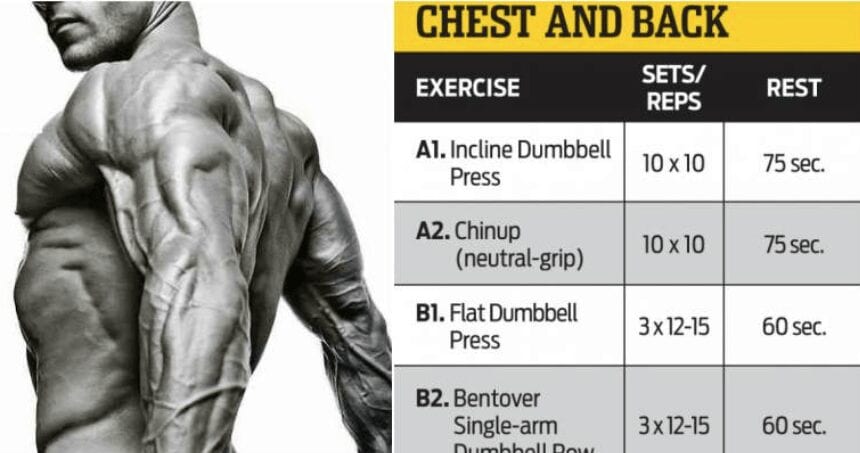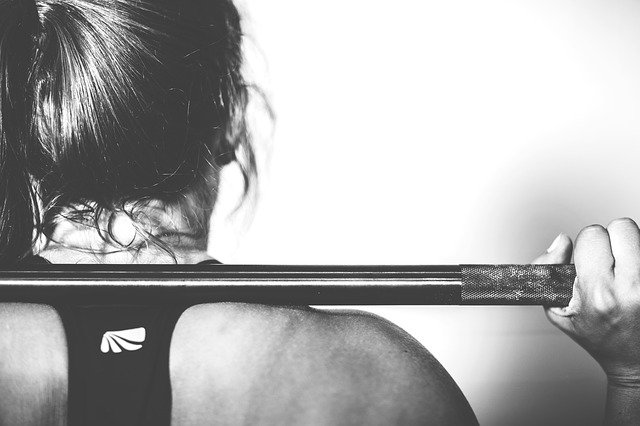
A bachelor's degree in exercise science is a great option if you are interested in pursuing a career in fitness and health. This degree will teach you about how the proper nutrition and exercise can improve your health, as well as how to engage in physical activities safely and effectively for individuals with certain health conditions. Students who study exercise science will also learn the science behind choosing healthy foods, fluids and supplements that fuel their bodies. They can achieve great results.
Prerequisites
A bachelor's degree is required for any career in health care. This degree gives you the academic knowledge you need to get into any health-care profession. These include physical therapy and athletic training. According to U.S. Bureau of Labor Statistics 2.4 Million new jobs are predicted to be created in healthcare by 2029. This trend will continue, and qualified exercise science graduates are expected to be in demand.
There are many job opportunities for a bachelor's in exercise science. Graduates can choose to work in the areas of health and exercise training, sports nutrition and program management. They may also work in hospitals, schools, or community centers. The bachelor's degree in exercise sciences can be used to become chiropractors, occupational therapy, and physical therapy.

Career prospects
Many rewarding careers are available for students of exercise science. The fitness industry is experiencing rapid growth due to increasing awareness of health and wellbeing. The fitness industry made more than $94billion in 2018 and those with a deep understanding of fitness and programs are better positioned to take advantage of this growth. If you have a passion to exercise, a bachelor's degree is possible. This will provide the education and training needed to advance your career or obtain certification.
The study of physical activity and the body under stress is at the heart of exercise science. These professionals can prevent and slow down the progress of various health and fitness conditions, increase performance, and even maintain optimal fitness levels. There are many courses in exercise science. These include kinesiology. Exercise science program students can also study biology, chemistry and anatomy.
Online programs
A successful bachelor's degree can be obtained online depending on what your educational goals are. Most programs require 120 credits and take four years to complete. You can choose to take asynchronous classes, or an accelerated program depending on your program. In the next few years, many jobs in the field exercise science will grow. The projected job growth is 13% for exercise professionals and 39% for trainers and fitness instructors.
A degree in exercise sciences may not be as expensive than you think. This is especially true when you consider the rising costs of higher education. Scholarships, grants, and assistantships can be found to help you pay less while you are enrolled in school. Even if your financial aid is not available, you may be eligible to apply for student loan funds to pay for the remainder of your degree. There are many grant types, from those offered by colleges to professional associations to government. Grants do not need to be repaid and are a great way to finance your education. You can read more about scholarships and grant opportunities in our guide to online programs.

Cost
For a career in the fitness and health industry, a bachelor's in exercise science can be a great option. While you can earn this degree online, it's best to attend a campus near you for lectures and other requirements. Many programs offer local internship opportunities to students who live close by. An accredited school is a higher quality institution that ensures the highest level of education. Unaccredited schools can also prevent you from receiving financial aid and transfer your credits.
The University of Kansas' Bachelor of Applied Science (Exercise Science) program is available online for professional fitness trainers. The courses focus on human movement, and functional changes to our bodies. This program is a great choice for students in pre-health or pre-med who want to get into the fitness industry. The program features a seasoned faculty who emphasize a hands on curriculum. Applicants are required to pay a $55 application fee and must meet the admission requirements for the program.
FAQ
What is Cardio Exercises?
Cardiovascular exercises are ones that make your heart and lungs work harder. Jogging, swimming and rowing are just a few examples. These activities increase metabolism and burn fat. They can also help you stay fit by strengthening your heart and lungs.
What is Resistance Training?
Resistance training uses weights or other objects to perform certain movements. Lifting weights helps strengthen your arms, shoulders, chest and back, as well as your legs, hips, and core. Resistance training promotes strength, muscle mass, and bone density.
How many hours of sleep should I get every night?
The recommended amount of sleep varies depending on age, gender, and individual needs. Adults need between 7 to 9 hours sleep each night. Teenagers and children typically need about 10 hours of sleep per night, but this number decreases as they grow older.
Are there exercises I shouldn’t perform?
Before you begin any new exercise regimen, make sure to check with your doctor. Some people are unable to exercise due to injuries. Certain activities require special equipment and training. Swimming, for example requires a swimming suit and access to the water.
Do I need to warm up before exercising?
Warming up before an activity reduces muscle soreness and improves performance. Warming up can take many forms, including walking, running or jumping rope, stretching, or cycling. Start slowly and gradually increase your pace and intensity.
Which Is More Important: Exercise or Diet?
It all depends on your goals. It is important to lose weight. However, if you want to gain muscle mass, then exercise is the most important factor for building muscles. Sleep is the last important factor, as it has little to do with how well your day goes.
Why is fitness so important?
It is essential to maintain our physical health. Exercise is important to maintain your weight, strength and flexibility as well our cardiovascular system. Exercise can help you sleep better, reduce stress, increase self-esteem, and increase energy levels throughout your day.
Statistics
- Globally, 28% of adults aged 18 and over were not active enough in 2016 (men 23% and women 32%). (who.int)
- Adolescent girls were less active than adolescent boys, with 85% vs. 78% not meeting WHO recommendations of at least 60 minutes of moderate to vigorous intensity physical activity per day. (who.int)
- According to the Centers for Disease Control and Prevention, chronic diseases cause 7 out of 10 deaths in the U.S., and treating chronic diseases accounts for 86% of U.S. healthcare costs. (mana.md)
- Globally, 81% of adolescents aged 11-17 years were insufficiently physically active in 2016. (who.int)
External Links
How To
How to stay fit during pregnancy
When you're pregnant, your body undergoes many changes. Your metabolism slows down, and you eat less because you're growing a baby inside you. If you don't get enough rest, you might feel sick. You don't have to be sick to enjoy this moment in your life. There are ways you can make sure you stay healthy!
Before you start any exercise program, it is important to consult your doctor. Your doctor can help you decide which exercises are safe and which should be avoided. The second is to eat well throughout pregnancy. This includes eating lots of iron, fiber, protein, and fiber. Third, make sure to drink plenty of fluids. Since sweat causes fluid loss, it is especially important that you drink water while you exercise. Last, take good care of your feet. Wear shoes that are supportive and dry. Take small bites of toast or crackers if morning sickness is a problem. Otherwise, you could end up feeling nauseous.
-
Healthy eating is key. A healthy diet is vital throughout pregnancy.
-
Keep active. Exercise at least 30 minutes daily.
-
Keep a healthy weight By eating smaller meals and snacks, you can lose weight.
-
Get enough sleep. Each night, aim to get at least 7-9 hours of rest.
-
Manage Stress. Learn relaxation techniques.
-
Avoid Alcohol. It can cause miscarriage as well as birth defects.
-
Be gentle with yourself. Don't push yourself too hard.
-
Take care of yourself. If you need someone to check in on your wellbeing, it is a good idea.
-
Relax. Do things that make YOU happy.